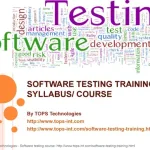The Kerala Technological University (KTU) syllabus is designed to provide a structured roadmap for students pursuing various engineering and technology courses. The syllabus aims to equip students with the necessary knowledge, skills, and competencies to excel in their respective fields. Whether you’re in your first year or final year, understanding the syllabus is crucial to your academic success.
In this article, we’ll break down the syllabus for the current academic year and also take a look at the syllabi from the past five years to highlight trends, changes, and any important updates. We’ll also provide useful tips and resources to help you stay organized, plan your studies effectively, and perform well in exams.
KTU Syllabus for the Current Year
The current syllabus at KTU is designed with a focus on practical learning, critical thinking, and industry readiness. It covers a broad range of topics across various branches like B.Tech and M.Tech courses, ensuring that students acquire both theoretical knowledge and hands-on experience.
Breakdown of the Syllabus for the Current Year
The syllabus for KTU is divided into multiple modules, with each module corresponding to specific subjects. Here’s a general breakdown for an undergraduate course like B.Tech:
Semester 1:
- Mathematics I: Focus on basic calculus, differential equations, and linear algebra.
- Physics I: Mechanics, fluid dynamics, and thermodynamics.
- Computer Programming: Basics of programming in languages like C and C++.
- Engineering Graphics: Introduction to technical drawing and design.
- Chemistry I: Basic concepts of organic and inorganic chemistry.
Semester 2:
- Mathematics II: Advanced calculus and complex analysis.
- Physics II: Electromagnetism and waves.
- Mechanical Engineering: Statics, dynamics, and mechanical systems.
- Basic Electrical Engineering: Introduction to circuits and electrical systems.
- Environmental Science: Understanding environmental issues and sustainability.
Key Concepts in the Current Year’s Syllabus
- Mathematics: Students will develop a strong foundation in mathematical techniques, which will be essential for problem-solving in various engineering disciplines.
- Physics and Chemistry: Emphasis is placed on understanding the fundamental principles of physics and chemistry that govern the real world.
- Computer Programming: The programming module is designed to provide students with the necessary skills to write efficient code and understand algorithms.
- Mechanical and Electrical Engineering: These sections focus on developing the technical skills required to understand and design mechanical and electrical systems.
- Environmental Science: Students will learn about global environmental challenges, sustainability, and how to address these issues in an engineering context.
Examination Pattern and Marks Distribution
The examination pattern at KTU typically consists of:
- Internal Assessments (30%): This includes periodic tests, assignments, and project work.
- End Semester Exams (70%): This comprises written exams focusing on both theoretical concepts and practical applications.
- Types of Questions: MCQs, short answer questions, and long-answer descriptive questions.
Each subject typically carries a weightage of 100 marks, with internal assessments contributing 30 marks and the final examination making up the remaining 70 marks.
Recommended Study Materials
- Textbooks: Each subject typically has recommended textbooks, which should be your primary study material.
- Online Resources: Websites like Coursera, edX, and YouTube tutorials are great for supplementary learning.
- Previous Year Question Papers: Reviewing these is crucial for understanding the exam pattern and for effective preparation.
A Look at the KTU Syllabus for the Past 5 Years
Overview of Previous Years’ Syllabi
While the KTU syllabus is periodically updated to meet the latest advancements in technology and education standards, it largely maintains continuity with slight changes each year.
- 2019-2020 Syllabus: Focus was on fundamental engineering principles, with an introduction to industry-relevant software tools. Subjects like Engineering Mechanics, Programming in C, and Circuit Theory were core modules.
- 2020-2021 Syllabus: Introduction of more practical-based projects, emphasis on online learning, and some minor adjustments to core engineering courses.
- 2021-2022 Syllabus: Some electives were added to encourage students to specialize in areas like Artificial Intelligence and Data Science.
- 2022-2023 Syllabus: More focus on industry integration, with additional coursework on Cybersecurity and Internet of Things (IoT).
- 2023-2024 Syllabus: The most recent syllabus includes a significant focus on interdisciplinary learning, incorporating more data analytics, machine learning, and real-world problem-solving projects.
Key Changes in the Past 5 Years
- The addition of modern electives like Data Science and Artificial Intelligence reflects the growing importance of these fields in engineering.
- The increase in practical and project-based learning emphasizes real-world applications.
- Online learning tools and open-source software have been incorporated to better equip students for the digital age.
Study Tips and Organizational Strategies
To stay on top of your studies and make the most out of the KTU syllabus, here are a few tips:
- Create a Study Schedule: Break your syllabus down into manageable units and allocate specific times for each topic.
- Use Study Groups: Collaborating with peers can help you understand difficult concepts and stay motivated.
- Regular Revision: Don’t wait until exams to revise; regular revision helps reinforce concepts and identify weak areas early.
- Take Breaks: It’s important to balance study with rest. Taking short breaks improves concentration and productivity.
FAQ for KTU Syllabus
1. What is the weightage of internal assessments in KTU exams?
Internal assessments typically account for 30% of the final grade, with 70% coming from end-semester exams.
2. Are there any major changes in the KTU syllabus this year?
Yes, the syllabus for the current year focuses more on interdisciplinary learning, with increased emphasis on subjects like Machine Learning, AI, and Data Science.
3. Where can I find the KTU syllabus for my course?
You can access the syllabus for your specific course on the official KTU website or through your college’s academic portal.
4. How can I prepare for KTU exams?
Focus on understanding core concepts, solving previous year question papers, and maintaining a study schedule. Don’t forget to utilize online resources and textbooks recommended by your professors.
5. How often is the KTU syllabus updated?
The syllabus is reviewed and updated regularly, typically every year, to incorporate the latest developments in engineering and technology fields.
The KTU syllabus serves as a comprehensive guide for your academic journey, providing you with the framework to develop both theoretical knowledge and practical skills. By understanding the syllabus, staying organized, and utilizing available resources, you’ll be well-equipped to excel in your studies. Remember, success lies in consistent effort and effective planning!
Latest Posts
- Step-by-step guide to download and apply for jee mains admit card 202
- Comprehensive 2025 government holidays and recruitment details for job seekers
- JEE Mains Admit Card 2025: Your Step-by-Step Guide to Downloading the Hall Ticket
- Everything You Need to Know About 2025 Government Holidays Recruitment
- Comprehensive Guide to rrb d group recruitment 2025 – Eligibility, Vacancies, and Application
- Detailed guide to nps trust recruitment 2025 vacancies, eligibility and apply process
- Comprehensive guide to hpcl recruitment 2025 notification, vacancies, and application process
- ignou bed admission 2025 complete recruitment guide with eligibility and process
- Comprehensive Guide to Indian Army Agniveer Recruitment 2025 Notification and Jobs
- Everything You Must Know About CBSE Board Exams 2025 Changes & New Rules






